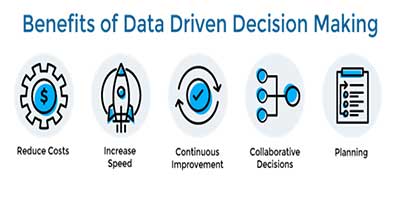Relevance: GS-3: Science and technology- developments and their applications and effects in everyday life
Key Phrases: Artificial Intelligence (AI), eVIN, CoWIN platform, Data collaboratives, Digital public goods, ‘Data for Policy’ initiative, COP26, Open-source technologies
Context:
- The Covid-19 pandemic disclosed the fragility of our social, environmental and economic systems. It has dispelled any notions that a country can insulate itself from world crises.
- The other pending global crisis like climate change is showing a devastating impact on life on earth,, increasing frequencies of natural calamities, caused by climate change are now very visible.
- Globally, resilience in food systems is an important priority because climate change could reduce annual agricultural yield by 15-18 per cent, adversely impacting the food security of many nations.
- Thus, Data driven policy making and data based decision making is emerging as an effective solution against these crises.
Significance of Data usage in solving crisis
- Data-driven strategies can identify vulnerable populations and hotspots easily, and can help develop better multi-dimensional measures at regional level.
- Predictive power of emerging technologies like Artificial Intelligence (AI) can initiate early action and develop resilience in public systems.
- For instance, data-driven applications like eVIN (electronic Vaccine Intelligence Network) supported by the Ministry of Health & Family Welfare and UNDP are streamlining the vaccine supply chain.
- Implemented in 29,000 public health facilities across India, the predictive power of eVIN helps in reducing stock-outs of vaccines by 80 per cent.
- The same platform has been repurposed to swiftly develop the CoWIN platform, a digital public good, supporting one of the largest vaccination drives in the world to combat the Covid crisis.
A successful case study of data based decision making in Telangana
- Telangana has launched an actionable AI policy framework to guide major policy decisions on food production, healthcare, and other areas.
- The State has deployed an AI-based solution that provides early warning signals on pest attack to the cotton farmers, thereby, reducing crop loss.
- The usage of technology and its timely interventions leading to more than 20 per cent increase in net profit to farmers.
- This AI-powered pest management system is now being diversified to improve resilience in other agriculture crops.
Underlying Challenges in Data usages
- Today, data exists in silos and in a very disintegrated form.
- Lack of interoperability for bi-directional usage of data.
- Inconsistent data standards.
- Data privacy and rising data breaches issues.
How to use data in policy naming?
- Data collaboratives and digital public goods based technological intervention are innovative strategies for effective data usages.
- They provide transparent collaborative platforms with appropriate protocols and data standards for multiple stakeholder collaboration.
- For instance, the ‘Data for Policy’ initiative, facilitated by the Government of Telangana and UNDP in partnership with The Rockefeller Foundation, is one such data collaborative effort to strengthen climate resilience of food systems.
- At COP26, India emphasised on climate resilient infrastructure and pledged India’s net zero carbon emissions by 2070. Thus, ‘Data for policy’ is a government effort set in this direction of strengthening climate resilience in food systems using innovation and emerging technologies.
- Rising Data based new startups and unicorns are further accelerating the integration and analysis of Data in public decision making.
Data for policy initiative
- The ‘Data for Policy’ initiative aims to strengthen climate resilience in agriculture programs and policies.
- It uses a combination of open innovation, data-driven technologies, and community-centric bottom-up approach.
- Using a remote sensing-based digital public good platform and pattern detection algorithms, it helps identify farms that are resilient to climate change and those that are highly vulnerable.
- The platform uses open-source technologies to facilitate analysis on climate resilience conducted by hundreds of young data scientists and citizen scientists sharing insights on best performing farms as evidenced by data.
Conclusion
- Fighting the climate crisis and building resilience is a long-term commitment and critical for future generations.
- The covid crisis provides an opportunity to strategically rethink and revise the way we come together to enable data-driven transformation.
- India needs many more innovative and collaborative approaches for building resilient systems so that any shock, climatic or otherwise, does not set back the clock on sustainable and equitable development.
Source: The Hindu BL
Mains Question:
Q. Data driven policy making and Data based decision making can act as a strong bulwark against existential crises like covid and climate change. Discuss (10 marks)









